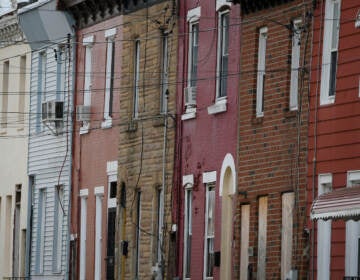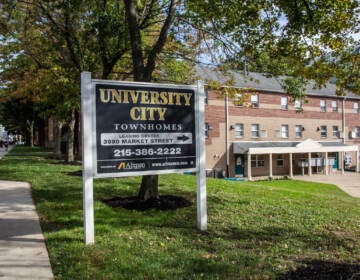‘I was by myself’: Parkway encampment down to last few residents
People leaving the protest encampment on the Benjamin Franklin Parkway are moving to new homes, some of them squats elsewhere in the city.
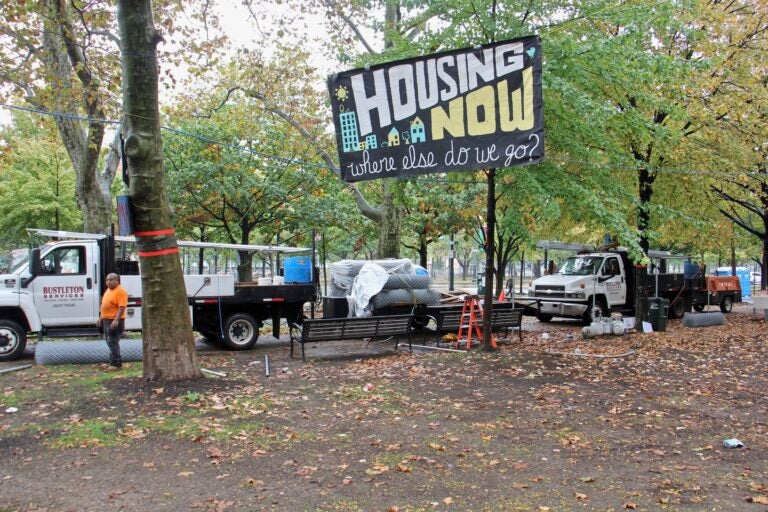
Workers put up fences around the Von Colln Field as the homeless encampment there is disassembled. (Emma Lee/WHYY)
Only about a dozen empty tents remained as the final trickle of residents, who had lived along the Benjamin Franklin Parkway since early June, packed up their belongings in black plastic tubs to be carted off to new homes. Workers drilled holes for a new chain-link fence erected around the perimeter of the Von Colln Memorial ballfield, which had housed roughly 200 people as the James Talib-Dean homeless encampment.
On Monday morning, Devon Foreman looked out over the site, now strewn with trash and broken-down tents.
“Last night I was there, I was looking around and I was by myself,” said Foreman. “All the people, all the community that we established was gone.”
Foreman said he became homeless after a falling out with his wife. After that, it was hard to keep his job at a grocery store and he ended up in Love Park before moving to the encampment in early July.
“It helped because I was no longer just wandering with all of my belongings,” said Foreman. “I was able to take a shower, go to the bathroom, eat.”
He was one the few last residents preparing to leave the encampment Monday as organizers worked to clear the area as per an agreement brokered three weeks ago with the city.
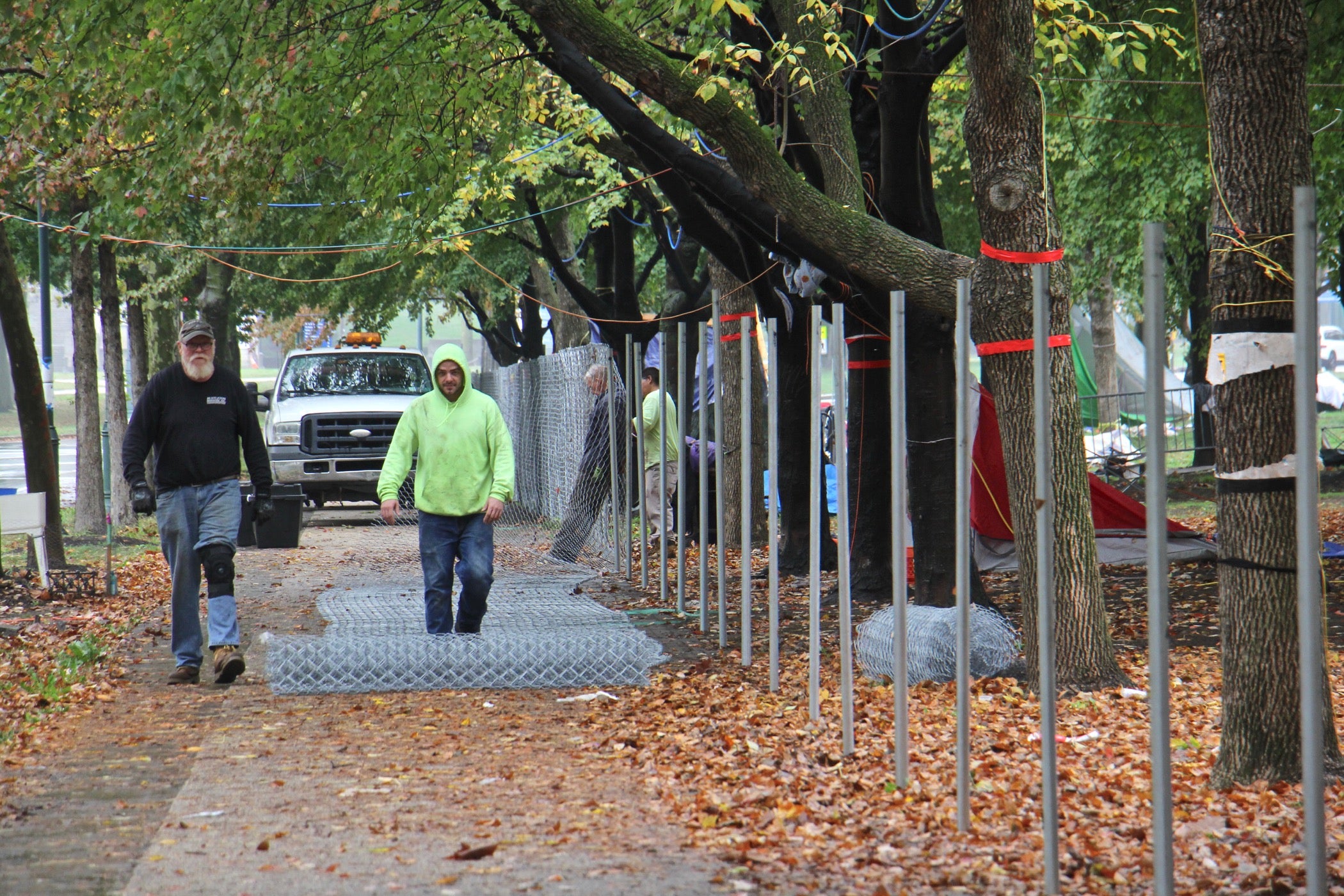
Mayor Jim Kenney’s administration has promised to provide 50 houses within six months, and two tiny-house villages by June 30. Most of the homes coming from the city will need repairs, which will be the responsibility of the camp organizers, who plan to form a community land trust.
Foreman said he is heading to an abandoned house where he expects to live with several other residents until a newly rehabbed home becomes available through the nonprofit land trust.
He’ll miss the community of people who shared the space on the Parkway and worries about how he’s going to feed himself without the communal kitchen they had created, he said.
“As with any kind of change, I don’t know what I’ll be facing,” he said. “I don’t know how it’s going to work, how it’s going to evolve. But I have hope because I believe people have good intentions.”
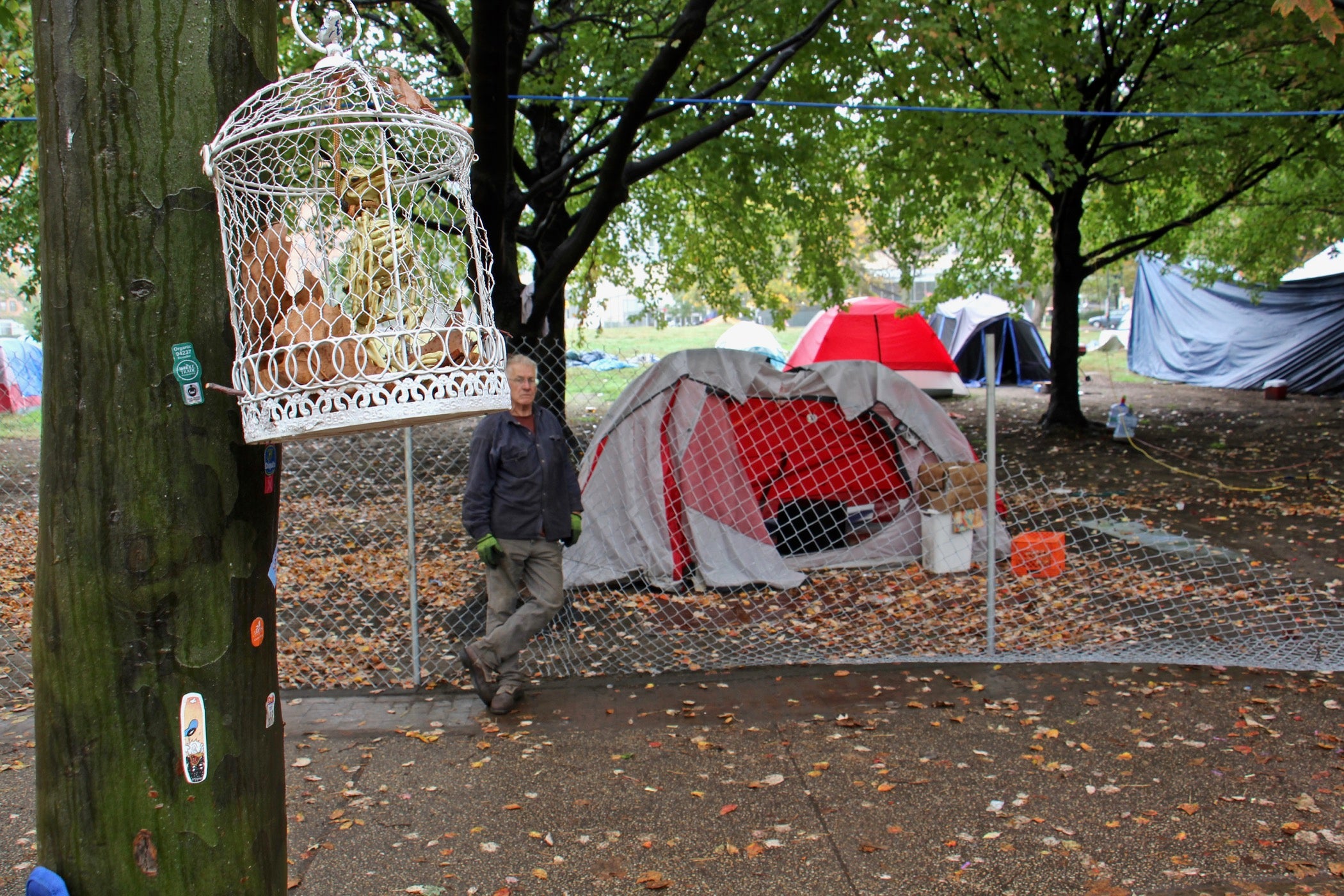
On Monday, several men who had only arrived at the camp several nights ago sought housing through the deal. They were turned away by the organizers.
“If you just showed up, you can’t just get a house,” said Jennifer Bennetch, one of the encampment’s organizers.
Bennetch, along with other housing activists and people experiencing homelessness, established the camp in June in protest of Philadelphia’s housing policies, calling attention to the deficit of available homes and safe, habitable shelters. They had one central demand: permanent housing for all residents of the camp. Many said they would not go into the shelter system, which they described as a low-level prison where their belongings were often stolen.
The agreement to clear the camp in exchange for housing came after months of negotiations with the city issuing three separate eviction notices, each time backing off and reentering talks.
Nearby neighbors complained of trash and violence emanating from the camp. In one incident, a person living in the camp was stabbed.
A city spokesman says its outreach efforts helped 203 people with both temporary and permanent shelter including COVID-prevention housing, drug and alcohol rehabilitation, a rapid rehousing program funded by the CARES Act and traditional shelters.
“We remain optimistic that the commitment made to decamp will be kept, so that all parties can move forward with other aspects of this important agreement,” said city spokesman Mike Dunn.
 WHYY is one of over 20 news organizations producing Broke in Philly, a collaborative reporting project on solutions to poverty and the city’s push towards economic justice. Follow us at @BrokeInPhilly.
WHYY is one of over 20 news organizations producing Broke in Philly, a collaborative reporting project on solutions to poverty and the city’s push towards economic justice. Follow us at @BrokeInPhilly.

Get daily updates from WHYY News!
WHYY is your source for fact-based, in-depth journalism and information. As a nonprofit organization, we rely on financial support from readers like you. Please give today.





